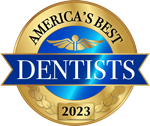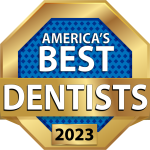Teeth grinding is a common symptom of sleep apnea, as the sleep-related movement caused by sleep apnea grinds or clenches your teeth. The condition of grinding or clenching the teeth is called Bruxism. You can have two types of bruxism. There is awake bruxism and sleep bruxism.
Sleep bruxism is a sleep-related disorder that is often caused by sleep apnea. It is common for people who do grind their sleep at night to also suffer from other sleeping disorders, such as snoring and pausing in breadth while sleeping.
How To Spot if You are Grinding Your Teeth
Sleep apnea can go undiagnosed for a long time, especially if you sleep alone. Therefore it can be difficult to spot. However, there are some ways to spot if you are suffering from sleep bruxism, especially if you grind your teeth while you sleep.
Even though you can grind your teeth during the day, it is usually done unconsciously.
The symptoms include:
- Sore facial muscles, neck, and shoulders.
- Pain in your jaw, which may lead to a condition called Temporomandibular disorder (TMB).
- Worn down or broken teeth. This can lead to increased sensitivity and the loss of some teeth and fillings.
- Constant ear aches.
- Disrupted periods of sleep.
- Constant headaches.
The dentists at Callahan & Klein have treatments that can help people dealing with teeth grinding caused by sleep apnea and can also prevent any further dental damage.
The Causes of Teeth Grinding
Currently, doctors do not fully understand all the causes of teeth grinding. However, there are some known causes of it.
Teeth grinding can often be linked to:
- The most common cause of teeth grinding can be linked to stress and anxiety.
- Sleep apnea and snoring
- Certain medications can also cause people to grind their teeth, such as certain antidepressants.
- If you smoke a lot, drink a lot of alcohol or caffeine, or take drugs such as cocaine or ecstasy.
Teeth grinding is also common with children and teenagers, especially while they are sleeping. Which is why it is so important that they get tested for sleep apnea. The condition is known to stop once they reach adulthood and have their adult teeth.
Can Teeth Grinding Be a Symptom of Sleep Apnea?
While there has been research that shows a connection between sleep apnea and people grinding their teeth, there is no known explanation of the correlation between the two. If sleep apnea causes an episode of the person to stop breathing while they sleep, it has been reported that they start to grind their teeth in response to wake the body. This when seeing a sleep apnea dentist is a good idea.
However, it can also happen in reverse. If the person starts to grind their teeth, the muscles that cause the grinding may also increase airway restrictions, leading to sleep apnea.
If you are suffering from jaw pains or any of the symptoms listed above, please feel free to book an appointment or contact our friendly staff at Callahan & Klein Dental for expert treatment so that you may have a pleasant night’s rest.



